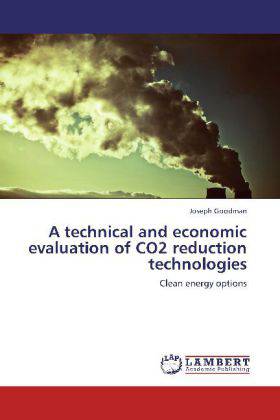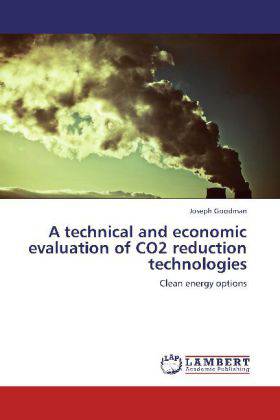
Bedankt voor het vertrouwen het afgelopen jaar! Om jou te bedanken bieden we GRATIS verzending (in België) aan op alles gedurende de hele maand januari.
- Afhalen na 1 uur in een winkel met voorraad
- In januari gratis thuislevering in België
- Ruim aanbod met 7 miljoen producten
Bedankt voor het vertrouwen het afgelopen jaar! Om jou te bedanken bieden we GRATIS verzending (in België) aan op alles gedurende de hele maand januari.
- Afhalen na 1 uur in een winkel met voorraad
- In januari gratis thuislevering in België
- Ruim aanbod met 7 miljoen producten
Zoeken
A technical and economic evaluation of CO2 reduction technologies
Clean energy options
Joseph Goodman
Paperback | Engels
€ 62,45
+ 124 punten
Omschrijving
An economic and technical study of carbon dioxide (CO2) reduction technologies was conducted. In order to compare technologies on a consistent economic and technical basis evaluation guidelines were proposed. Data on the emissions impact and cost impact of each technology was collected through a literature review. The CO2 reduction cost was available for some technologies and calculated as part of the study for the remainder under consideration. The CO2 reduction cost was compared to the current market value of CO2 emissions credits in the European Trading Scheme. Results indicate that for existing power plants efficiency improvements such as boiler optimization are capable of providing modest CO2 emissions reductions for less than the market value of CO2 credits. More significant reductions are available through post-combustion flue gas decarbonization and pre-combustion fuel decarbonization at cost comprable to CO2 credit values seen in 2006. Systems processes indicate pre-combustion fuel processing is capable of significant cost reduction through further technology development.
Specificaties
Betrokkenen
- Auteur(s):
- Uitgeverij:
Inhoud
- Aantal bladzijden:
- 84
- Taal:
- Engels
Eigenschappen
- Productcode (EAN):
- 9783659287053
- Verschijningsdatum:
- 9/11/2012
- Uitvoering:
- Paperback
- Afmetingen:
- 150 mm x 220 mm
- Gewicht:
- 136 g

Alleen bij Standaard Boekhandel
+ 124 punten op je klantenkaart van Standaard Boekhandel
Beoordelingen
We publiceren alleen reviews die voldoen aan de voorwaarden voor reviews. Bekijk onze voorwaarden voor reviews.









